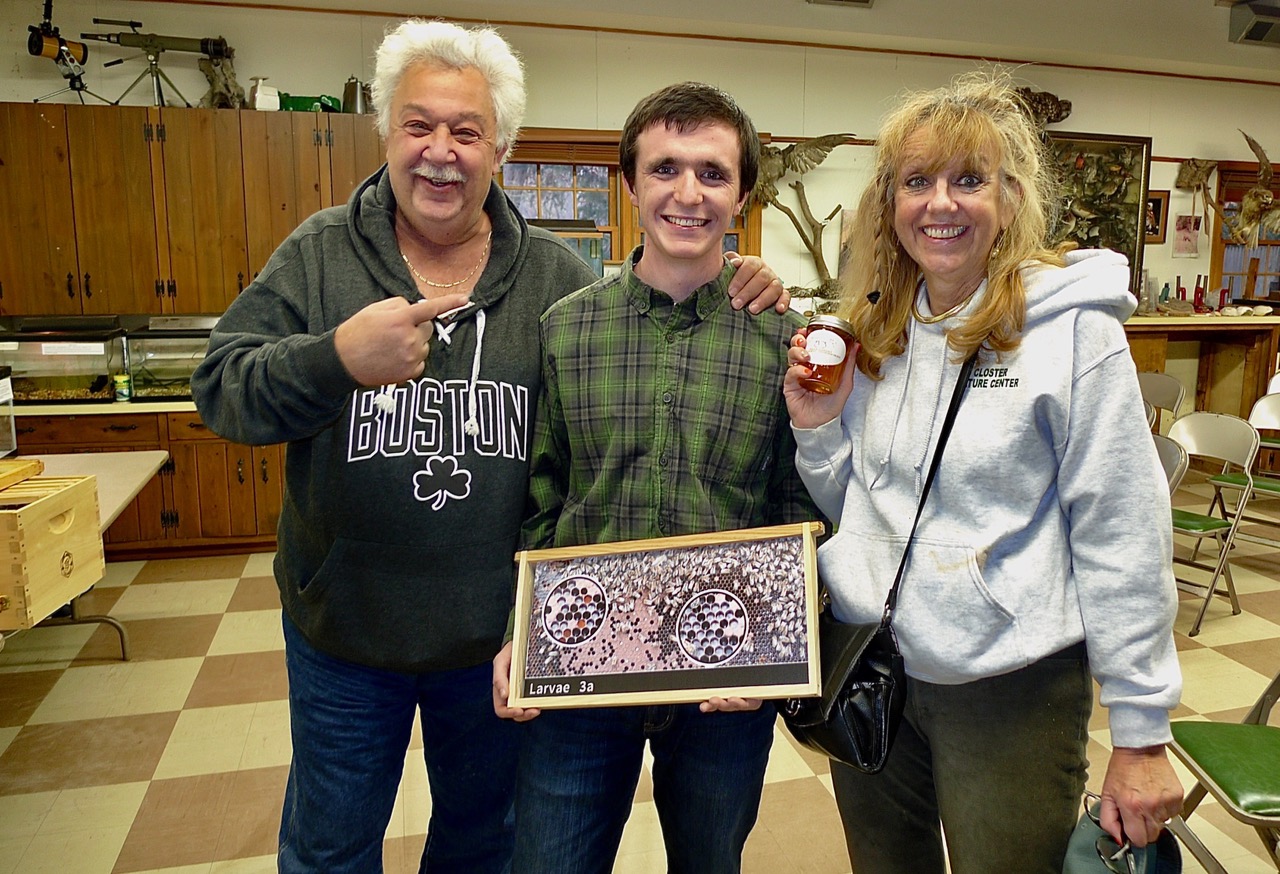
BY SUSAN MCTIGUE
Bees have made headlines during the last several years as bee populations have declined significantly, causing great concern among environmentalists and the general public. On Sunday afternoon, Nov. 12, the Closter Nature Center invited Pat Harrison from Ramapo College to present a program about bees and the crucial role they play as pollinators. He explained that bee-keeping began in Spain 20,000 years ago and is well-documented in Egyptian illustrations.
[slideshow_deploy id=’899′]
Modern bee-keeping began in 1852 when the Langstrom hive was designed. Over the years, vertically modular hives with removable frames were developed to allow bees to create their waxy honeycombs and produce honey that can be collected by humans. Beekeepers using this system can remove combs easily and check that the hive remains healthy.
Harrison revealed that much has been learned about bee communication in the last 75 years and how bee colonies pollinate by visiting hundreds of thousands of flowers each day. The bees collect pollen with every stop, then cross-pollinate as they move to other flowers. New Jersey alone has 400 kinds of bees and will only sting in order to defend their hive.
The Closter Nature Center, located at 154 Ruckman Road, offers many programs throughout the year, all open to the public with no admission charge. For more information about classes, trails and events, see www.closternaturecenter.org. For more information about bees and beekeeping in your local communities, contact Pat Harrison at pat.harrison.64@gmail.com.
Photo by Susan McTigue
